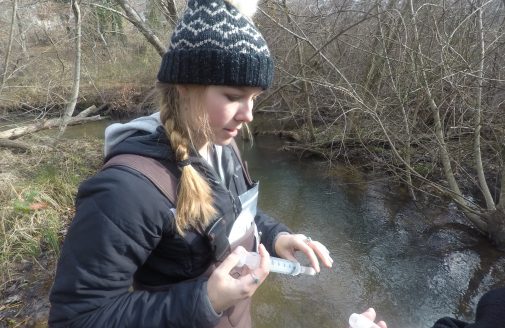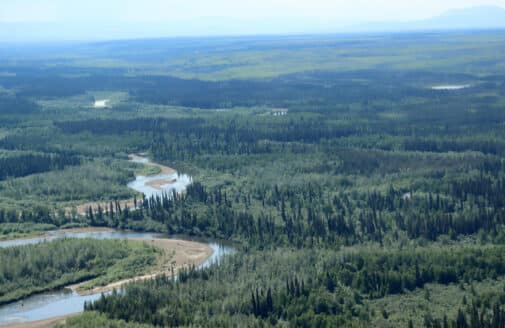Trip to Brazilian Amazon explores river chemistry, climate connections
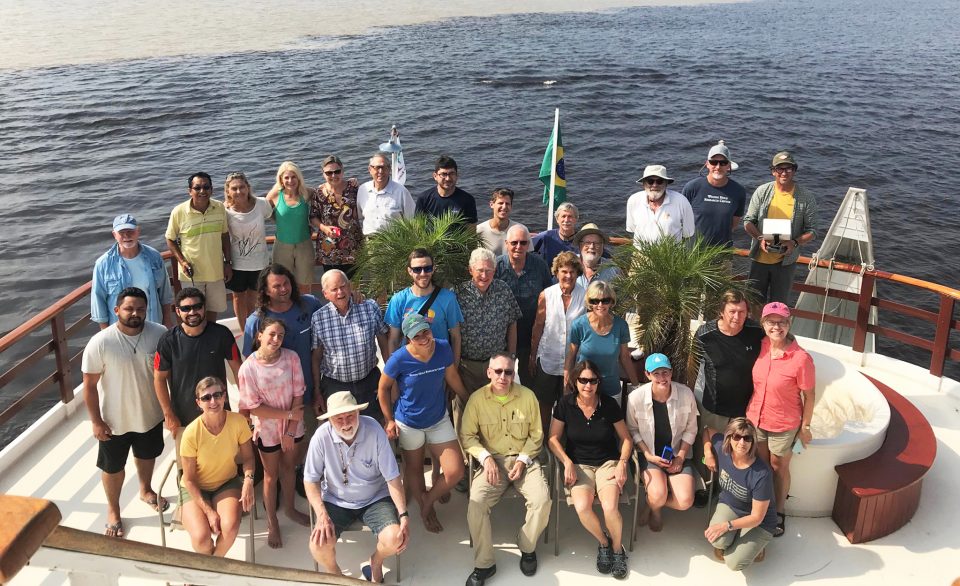
Last month, the Global Rivers Observatory completed its fourth expedition, this time to the Rio Negro, a major tributary of the Amazon River in the heart of the Brazilian rain forest.
The trip was led by Dr. Max Holmes, Woodwell’s Deputy Director, and Dr. Bernhard Peucker-Ehrenbrink, Chair of Woods Hole Oceanographic Institution’s Marine Chemistry and Geochemistry Department. Water samples collected during the expedition will be returned to the Cape Cod for analysis. In addition to scientific field work and research presentations, participants visited with indigenous tribes, and got up-close views of magnificent wildlife including pink river dolphins, squirrel monkeys, and peacock bass.
The Global Rivers Observatory is a joint project of Woodwell Climate and WHOI. With partners from around the world, the Observatory investigates river chemistry in some of Earth’s most significant river systems. Now active in 16 watersheds around the world, the Observatory focuses on measuring the chemical composition of rivers near their mouths where they empty into the ocean.
The 10-day trip was a chance for scientists to study the ecology and chemistry of rivers, for Woodwell Climate Research Center (formerly Woods Hole Research Center) and Woods Hole Oceanographic supporters to see scientific work first-hand, and for all to participate in science discussions that will shape future research.
The Observatory works to advance understanding of how climate change, deforestation, and other disturbances are impacting river chemistry and land-ocean linkages. This knowledge is vital for tracking the health of Earth’s watersheds and for predicting how Earth’s water and chemical cycles will change in the future. As the human population approaches nine billion people over the coming decades, this understanding will be essential as communities dependent on rivers struggle to adapt to rapidly changing conditions. Learn more at GlobalRivers.org.
Latest in Water
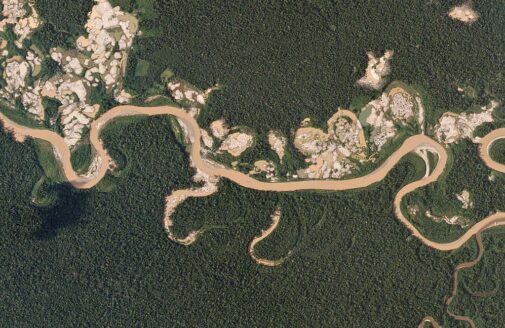
- In The News
Gold mining causes long-lasting damage in the Amazon rainforest
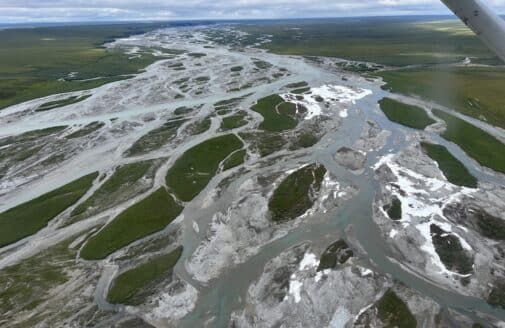
- In The News




